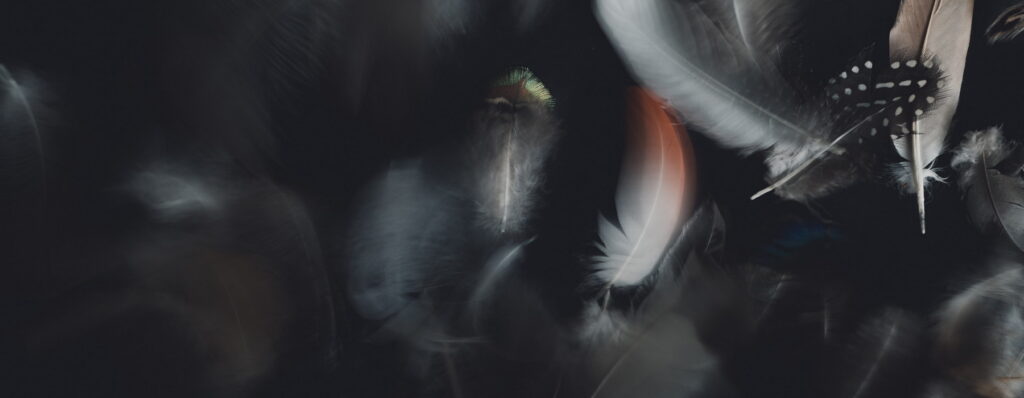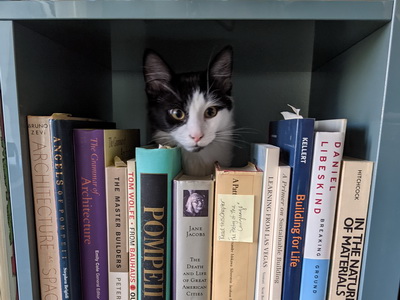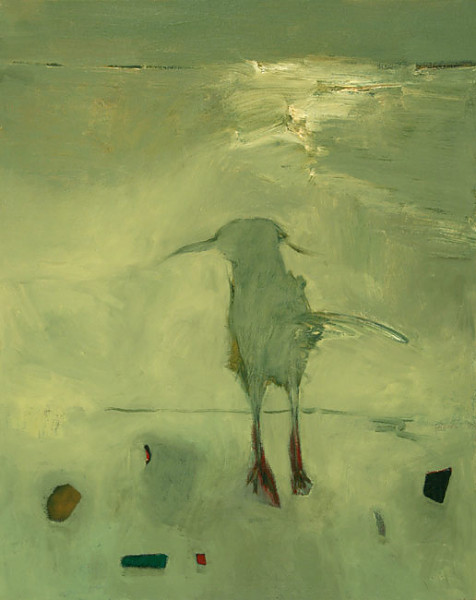Writer’s Notebook: “Avian Elegies”
Published December 2020, Issue #4

I feel a curious mix of melancholy and hope as I read our current issue and linger on the images and songs chosen as companions. Even the Tibetan singing bowl sounds both sad and joyful. I love this kind of blending of dark and light, because it reminds me to look for beauty and grace in what is hard and painful. More, it reminds me to live deeply my uncrowded, unshaded moments. It reminds me to be grateful. Why, then, does this issue bring to mind so palpably a piece that does not read as a blend of dark and light at all, but is, I would argue, probably our darkest publication?
I just re-read Shannon Bowring’s “Avian Elegies” once again. There isn’t much, if any, light in the storytelling (the Vivaldi, I think, but others might disagree). But yes, for me it captures that same pleasing sadness, that dark pulse of joy that I relish. Read it and tell me if you agree: The light that accompanies the dark comes from the song of the lines, the rhythm of the refrain. The simple (painful) beauty of the images woven throughout the piece, and the music of “Little darling, baby bird.” The accrued meaning of the telling is almost completely dark. But the manner of telling is so lovely that it combines with the one light brushstroke of telling (I’m right, it’s the Vivaldi!) to lift the narrative partly from the shadows by the end. Alchemy.
Shannon isn’t sure herself how she pulled it off. Here’s what she says about it:
When I submitted “Avian Elegies” to Waterwheel Review, I noted in my cover letter that the story had “burst out of me one morning seemingly out of nowhere, and after it was done, I wasn’t quite sure what it was.” Over a year after writing the story, I still don’t really know what this piece is, and that’s what I love most about it. The more I write, the more I believe a story does not need to fall into a specific, easy-to-define genre or category. And the more I write, the more I understand inspiration for a story never comes from one clear source but from a lovely, messy jumble of disparate images, dreams, impressions, and memories. Some of the scenes in “Avian Elegies” are drawn from my own experience (a grandfather’s boat on a distant lake, greedy seagulls in a hospital parking lot), but most of the story (missing sisters and dead birds with rainbow plumage) is part of that jumble. An indefinable mix of grief and love and blood and magic. A little bit like life itself.
I have very fond memories of finding our companion pieces for this publication. If you’ve never seen Audubon’s prints in Birds of America, treat yourself to this video we included in our homepage triptych. Here’s an article we considered using, that includes another great (much shorter) video about a ritual page-turning of one of these books held currently at Bowdoin College in Maine—I love this video so much, but we couldn’t resist the previous one because of the absolute feast of prints included.
And here’s a special offering from our Suzanne Farrell Smith, the WWR team’s sweetest voice. I mean that literally, as you’ll discover if you listen to this personal recording (using just her cell phone), of one of her favorite bedtime lullabies for her boys, “Memorial Song.” As a companion to “Avian Elegies” we used Patti Smith’s version, because its sad-sweet inspiration, the death of Smith’s close friend, seemed like the appropriate context. But we gave Suzanne’s rendition a shot, because we love her voice as accompaniment to this piece that reads so much like a song, and we hankered for that raw immediacy of a personal, unadulterated recording. It wasn’t dark, we realized, and this piece, as I’ve been saying, demanded dark. So we went with Patti, but Cheryl and I dined on Suzanne’s recording for a few days, and I still hold it in my heart. Thank you, Suzanne, for letting me post it here.
Thanks again to Shannon Bowring for letting us showcase her work. Work that, as it happens, was selected for The Best Small Fictions 2021 anthology, out NOW from Sonder Press. Congratulations, Shannon!
—Claire Guyton



